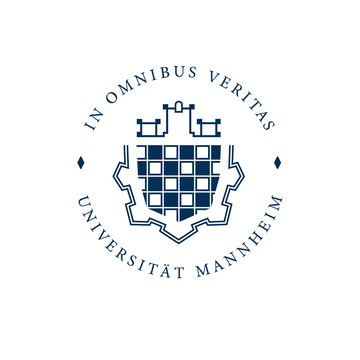Bachelor's Program in Business Informatics
Learning Agreements“
What is a Learning Agreement, and which forms of recognition are possible for courses they are concluded for?
Learning Agreements“ can be regarded as a sort of insurance that the courses you choose to attend at your higher education institution abroad will be recognized by your home university upon return.
Generally, there are two ways of recognizing coursework and examinations you complete abroad:
- direct recognition as an equivalent course
- indirect recognition as an “International Course”
Direct recognition
For a course to be directly recognized, it has to be considered equivalent to a course from the module catalog of your program in terms of the skills you acquire in that course. If you can identify a course at your host university that is largely identical (> 66 % conformance) to a course you can or must complete here, you can include it in your Learning Agreement for direct recognition. The course you complete abroad will then substitute the course taught in Mannheim. To discuss whether a particular course can be directly recognized, please contact the chair offering the module at the University of Mannheim.
Indirect recognition
If the Mannheim module catalog contains no direct equivalent to the course you wish to complete at your host university, but the module contents fit a particular area of specialization, it may be recognized indirectly as a BI401 International Course. Bear in mind, however, that the sum of credit points awarded for these courses must not exceed 12 ECTS credits in total.
To discuss whether indirect recognition is possible for a particular course, please contact the chair responsible for this area of specialization.
Calculation of ECTS credits in cases of indirect recognition
The examination committee determines how many ECTS credits you will receive for a BI401 International Course. The number of credits awarded is calculated by converting the credits of the host university. Through the conversion, you might obtain more or fewer than 6 ECTS credits for a particular course. Please bear in mind that we can only recognize a maximum of 12 ECTS credits for International Courses in your bachelor's degree. Higher education institutions in Europe will usually award you ECTS credits or credit points similar to the ECTS system.
Should I choose courses for direct recognition or courses for indirect recognition?
As the number of courses subject to direct recognition is generally unlimited, unlike International Courses, you should choose such courses wherever possible. Courses that are directly recognized also bear the advantage that the credits obtained in these courses do not have to be converted.
What do I need to do in order to conclude a Learning Agreement and to obtain my credits?
Once we have sent you your letter of acceptance for a partner university (or, if you are a free mover, once you have received your letter directly from the host university), you should start filling out your Learning Agreement. We strongly advise you to conclude your agreement before you go abroad. That way, you are on the safe side and already know beforehand which courses will be recognized for your studies at home.
The Learning Agreement consists of this form:
- Fill out one Learning Agreement (PDF, 398 kB) for each of the modules you intend to study abroad.
For the recognition of your courses and credits, you need to follow two steps:
Before your departure
After it has been decided which higher education institution you will be going to, but before departing, you need to take one Learning Agreement form for each module you intend to study abroad to the chair responsible in order to have the module approved. For courses offered at the School of Humanities, in Mathematics in Business and Economics, at the Business School, or the Department of Economics, please contact:
- all indirect Learning Agreements: Prüfungsausschuss WIM
- School of Humanities
- Mathematics in Business and Economics: PD Dr. Thomas Reichelt
- Business Administration and Information Systems Chairs:
- Direct recognition: Learning Agreements Business Administration
- Indirect recognition: Prüfungsausschuss WIM
- Economics: Christiane Cischinsky
- Please note that we can only process complete applications and the processing time can take up to 4 weeks, depending on the effort involved and the current status of the applications for Learning Agreements.
Upon your return
After your return to Mannheim, please submit the following four documents to the examination committee responsible for you in order to have your grades and credits recognized and converted:
- request form for recognition of coursework and examinations completed abroad (“Anrechnung ausländischer Leistungen”) (PDF, 41 kB)
- Transcript of Records from your host university: Original Transcript of Records stamped and signed by your host institution or a transcript verified by the International Office in Mannheim. For this purpose, the host university must send the document digitally to the address transcriptsuni-mannheim.de. The verified transcript will then be made available digitally to the examination committee and you will be notified of this. If your host institution issues transcripts exclusively through an online portal and it is NOT possible to have your transcript sent directly to us through the portal, please inform us at transcriptsuni-mannheim.de and we will let you know how to have your transcript verified.
- Learning Agreement(s), signed by the chairs at the University of Mannheim, as well as the cover sheet
- confirmation by the International Office that you handed in your report
Your documents will then be checked and your grades converted. Grades obtained abroad are converted by the University of Mannheim using these conversion tables.
Please submit your application via your university email address. Please send your documents to pruefungsausschuss.wimuni-mannheim.de. To verify your transcript, please ask your host university to send your transcript directly to the University of Mannheim (transcriptsuni-mannheim.de). Please note that we can only process complete applications and the processing time can take up to 4 weeks, depending on the effort involved and the current status of the applications.
Which forms do I need to fill out in order to conclude a Learning Agreement?
Degree plans and course schedules
Degree plan
To obtain your bachelor’s degree, you need to collect a total of 180 ECTS credits (according to the European Credit Transfer System), usually within a standard period of study of six semesters.
The courses set in the first four semesters will teach you the fundamentals of computer science, business administration, mathematics, and business informatics. During your fifth and sixth semester, you will have the chance to specialize in an area by choosing specialization courses in business administration, informatics, or business informatics. From the fourth semester onwards, the acquisition of soft skills will form an integral part of the curriculum, as these important key competences are highly sought after by employers.
You can view the degree plan for the bachelor’s program in Business Informatics here (in German):
Course schedules
You can view the course schedules for the current academic year here (in German):
Examinations
There are various forms of examination at the University of Mannheim, with written examinations playing a central role. These are held in fixed examination periods. There are two examination periods per semester: The first usually begins immediately after the end of the lecture period, while the second usually starts in the week before the start of the new semester.
In addition to written examinations, students also have other examination formats at their disposal, such as assignments, projects or oral examinations. These offer the opportunity to perform individually in different contexts.
You can find more information about examinations here.Examination regulations and module catalogs
Examination regulations
The examination regulations lay out all the regulations governing your studies. To see the examination regulations applicable to your program, please visit the Student Services pages.
If you have any questions about the examination regulations, please contact the examination committee.
Module catalog
The module catalog for 2024/
25 (PDF, 1 MB) gives you an overview of all courses and contents of your program. Examination committee
Members of the examination committee for the bachelor’s program in Business Informatics are:
- Prof. Dr. Colin Atkinson
- Prof. Dr. Rainer Gemulla
- Prof. Dr. Simone Ponzetto
Chairman
Prof. Dr. Atkinson
Student representative
Johannes Pohlmann
Academic advising
Students enrolled in a Business Informatics program can seek advice from our academic advisor and our student success coordinators at any time.
You can consult us in questions regarding:
- course contents and degree planning (modules, final examinations, verifications and validations)
- examination regulations
- hardship / extension of deadlines
Contact: studienberatungwim.uni-mannheim.de
 Credit: Emilie Orgler
Credit: Emilie OrglerBirgit Czanderle, M.A.
Student Success Coordinator, Study Coach Business Informatics, MMDS and MMSDS, Contact to Examination CommitteeUniversity of Mannheim
School of Business Informatics and Mathematics
B 6, 26
Gebäudeteil B – Room B 0.05
68159 MannheimConsultation hour(s):
by appointment Credit: Emilie Orgler
Credit: Emilie OrglerLisa Wessa, M.A.
Program Manager B.Sc. Business Mathematics, B.Sc. Business Informatics, Mannheim Master in Data ScienceUniversity of Mannheim
School of Business Informatics and Mathematics
B 6, 26
Gebäudeteil B – Room B1.04
68159 MannheimConsultation hour(s):
You can reach me Mondays 11:00 a.m – 12:00 p.m. via phone or via E-Mail. Online-Appointments are possible. https://www.wim.uni-mannheim.de/studium/studienorganisation/terminvereinbarungen/
Contact the School of Business Informatics and Mathematics
University of Mannheim
School of Business Informatics and Mathematics
B6, 26
68159 MannheimConsultation hour(s):
by appointment via e-mailBachelor's thesis
In your fifth semester, a seminar will be offered to prepare you for your final thesis. You will then write the bachelor’s thesis over a period of three months, during which you will scientifically work on a given topic.
Finding a supervisor and topic for your bachelor’s thesis requires early planning and initiative on your part. It is primarily your responsibility as a student to contact a chair that fits your study profile. This means that you need to contact several chairs or professors on your own initiative in order to find someone who will agree to supervise your thesis. It is the norm that students contact the chairs personally, and something we expect from students at our school.
Students of Business Informatics have the option to write their thesis either at an Informatics chair or a Business Informatics chair.
You can find an overview of all Informatics chairs at the School of Business Informatics and Mathematics here.
Listed below are all Business Informatics chairs at the Business School (Area Information Systems):
- Chair of General Management and Information Systems (Prof. Dr. Armin Heinzl)
- Chair of Enterprise Systems (Prof. Dr. Hartmut Höhle)
- Chair of Data Science in the Economic and Social Sciences (Prof. Dr. Markus Strohmaier)
- Assistant Professorship for E-Business and E-Government (Prof. Dr. Julia Krönung)
- Assistant Professorship of E-Business and E-Government (Prof. Dr. Kevin Bauer)
